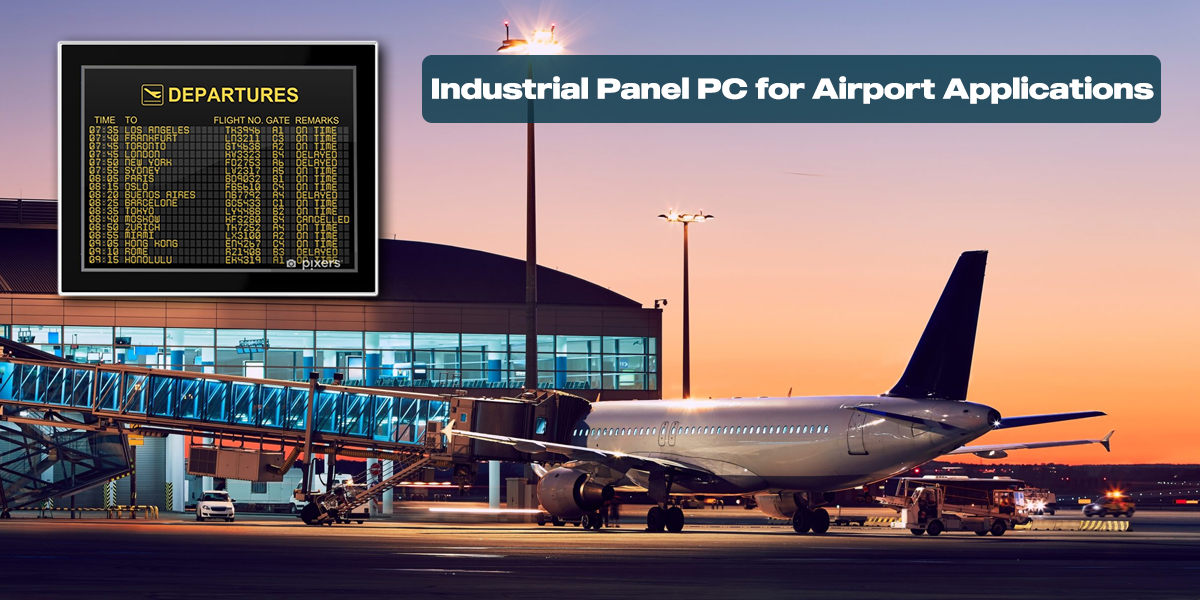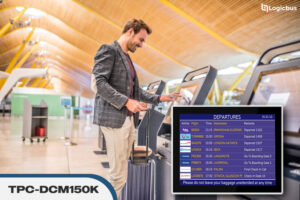The airport industry is an industry that is always at the forefront in terms of technology, as it has the greatest technological advances for the control and automation of airport operations and, most importantly, passenger comfort.
In the airport industry, it is already very common to see how passengers begin to carry out flight procedures in a simpler way, without anyone’s help. How? Thanks to the self-service stations that have emerged in airports gradually and has shown a great trend of diversified development.
Modern airports are distinguished by being a collection and distribution center for people, logistics, capital and information. At the time of building an airport and, once finished, its technological update is very important. Airports face a problem, which is “bottleneck pressure” which refers to the increase in passenger flow.
That is why self-service services will play an increasingly important role over the years, including booking / changing flights, purchasing additional services, baggage tags, etc.
Passengers today are more accustomed to online check-in and mobile check-in. With time, airports are updating their processes for baggage registration, radio frequency identification (RFID), near field communication (NFC), facial biotechnology, etc.
All these advances have caused the demand for this technology in other airlines that do not yet have this technology, for example self-service security control, immigration control, self-boarding, etc.
AIRPORT REQUIREMENTS:
Self-service check-in is becoming more and more common. It differs from the traditional since you do not have to approach a counter. Based on this, some technologies are gradually being updated, such as: Radio Frequency Identification (RFID), Near Field Communication (NFC) and facial biotechnology.
The main beneficiaries of this technology would be the people who constantly use airports, because with RFID technology they would only need to place their identification card in the check-in card reader.
For the flight number and related information, passengers just need to follow the instructions, choose their favorite seat on the plane and print the flight ticket and invoice. The self-check-in service shortens the waiting time for passengers at the counter. The entire process is operated entirely by the passengers themselves, which is a more efficient check-in method.
TAICENNs SOLUTION:
Thanks to a Panel PC, the airport self-service check-in equipment system interacts with the upper layer through the network ports of the industrial panel PC, controls through serial ports or USB communication (credit card reader). identification, passport reader, 2D barcode scanner, civil aviation membership card reader, etc.)
The 15.0-inch industrial-grade LCD screen and high-precision multi-point capacitive touch screen serve as the HMI platform for user information interaction and operation, and passengers can realize fast and accurate self-service.
The brain of all these processes is TAICENN TPC-DCM150K Industrial Panel PC is an important support for the stable operation of airport check-in equipment terminals. Therefore, the industrial panel computer provides high stability, security and 24/7 uninterrupted operation, and is the basic requirement of the equipment to help the construction of intelligent airports.
PRODUCT FEATURES
- Magnesium aluminum panel, sheet-metal box structure
- 15.0″ TFT LCD, LED backlit, resolution 1024*768
- Intel kaby lake 7th-gen. Core i5-7200U Dual core processors
- Multi-points projective capacitive touch, EETI controller
- Fanless & slim design, front IP65 rated protection
- Panel mount, support VESA 75/100 mount
- DC 12~24V input, with over-current, over-voltage protection
- 2*Intel GLAN, 2*RS232 (Optional 1*RS485), 4*USB3.0
- Expansional with 3G/4G/LTE, Wi-Fi/BT wireless
- Optional with 2 x 2w mini speaker
- I/O: 4x USB, 2x GLAN, 2x COM, 1x HDMI, Audio




